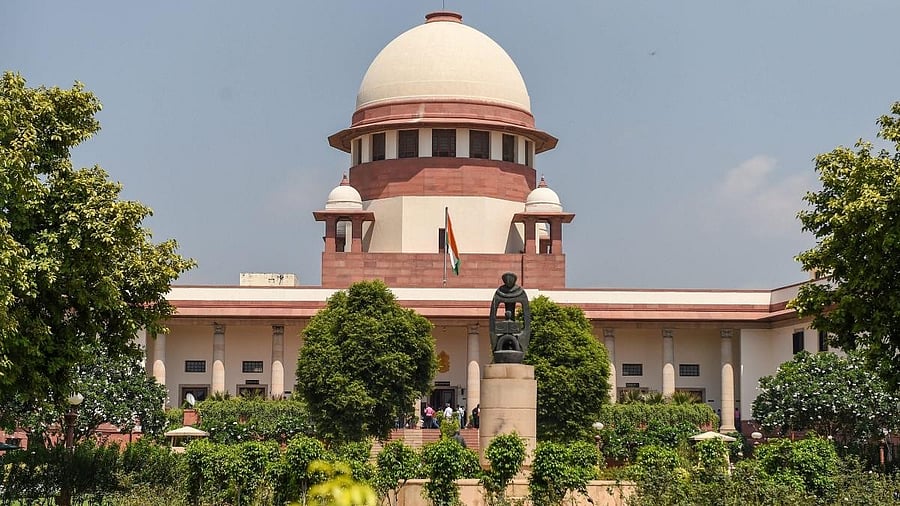
The Supreme Court of India.
Credit: PTI Photo
New Delhi: The Supreme Court on Wednesday struck down the Tribunal Reforms Act, 2021, holding it undermined judicial independence as the government reintroduced certain provisions which were earlier negated by the top court.
A bench of Chief Justice of India B R Gavai and Justice K Vinod Chandran quashed the provisions of the 2021 Act, on appointment and tenure of tribunal members, while expressing disapproval of the manner in which the Union of India has repeatedly chosen to not accept the directions of this court on the very issues that have already been conclusively settled through a series of judgements.
“We have compared the provisions of the Tribunal Reforms, Ordinance, 2021, and the Tribunal Reforms Act, 2021. The comparison would show that all provisions which were struck down by this court, with minor tweaking have been reproduced in the enactment,” the bench said.
The court granted the Union government a period of four months to establish a National Tribunals Commission as consistently directed in the earlier judgments.
"The creation of such a commission is an essential structural safeguard designed to ensure independence, transparency, and uniformity in the appointment, administration, and functioning of tribunals across the country,'' it said.
In its judgment, the court held the provisions of the impugned Act cannot be sustained for they violated the constitutional principle of separation of powers and judicial independence, which are firmly embedded in the text structure and spirit of the Constitution.
"Once the Court has struck down a provision or issued binding directions after identifying a constitutional defect, Parliament cannot simply override or contradict that judicial decision by reenacting the very same measure in a different form,'' the bench said.
The court said it is indeed unfortunate that instead of giving effect to the well-established principles laid down by this court on the question of the independence and functioning of tribunals, the legislature has chosen to reenact or re-introduce provisions that reopen the same constitutional debates under different enactments and rules.
The bench said the Act directly contradicted binding judicial pronouncements that are repeatedly cited by standards governing the appointment, the tenure, and functioning of the tribunal members.
"The impugned Act, merely reproduces its slightly altered form the very provisions earlier struck down. This amounts to legislative override in the strictest sense. Attempt to nullify binding judicial directions without addressing the underlying constitutional infirmity," the bench noted.
It further said the Act failed to remove defects identified in the prior judgment and instead enacts them with a new label. While the judiciary cannot dictate policy, it can and must ensure that legislative choices conform to the Constitution, it said.
The court clarified that all appointments of Members and Chairpersons whose selection or recommendation by the Search-cum-Selection Committee was completed before the commencement of the Tribunal Reforms Act, 2021, but whose formal appointment notifications were issued after the Act came into force, would be protected.
Such appointments will continue to be governed by the parent statutes and by the conditions of service as laid down in the previous judgments, rather than by the truncated tenure and altered service conditions introduced by the Tribunal Reforms Act, 2021, the bench said.
